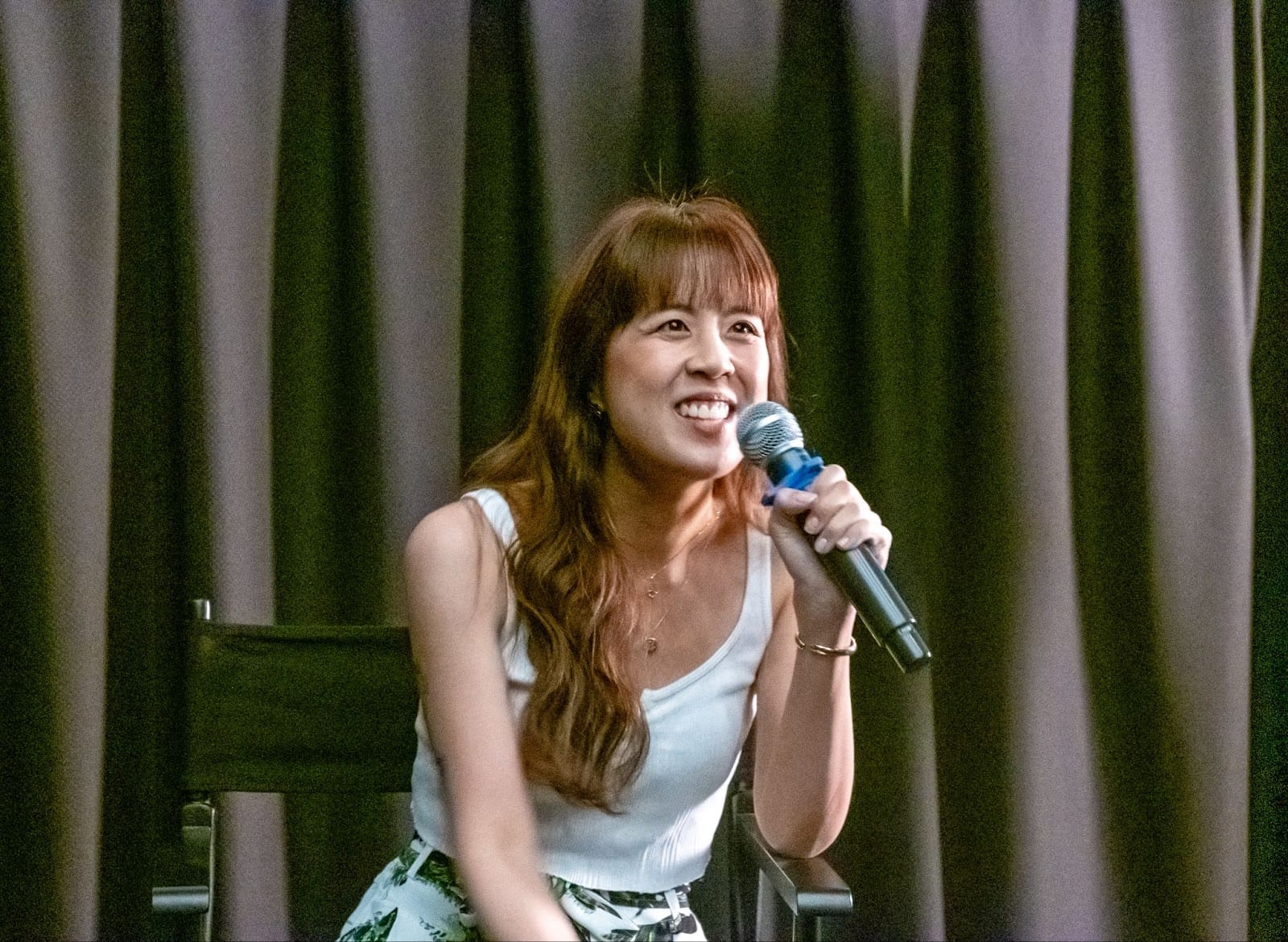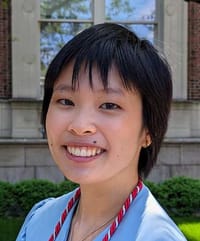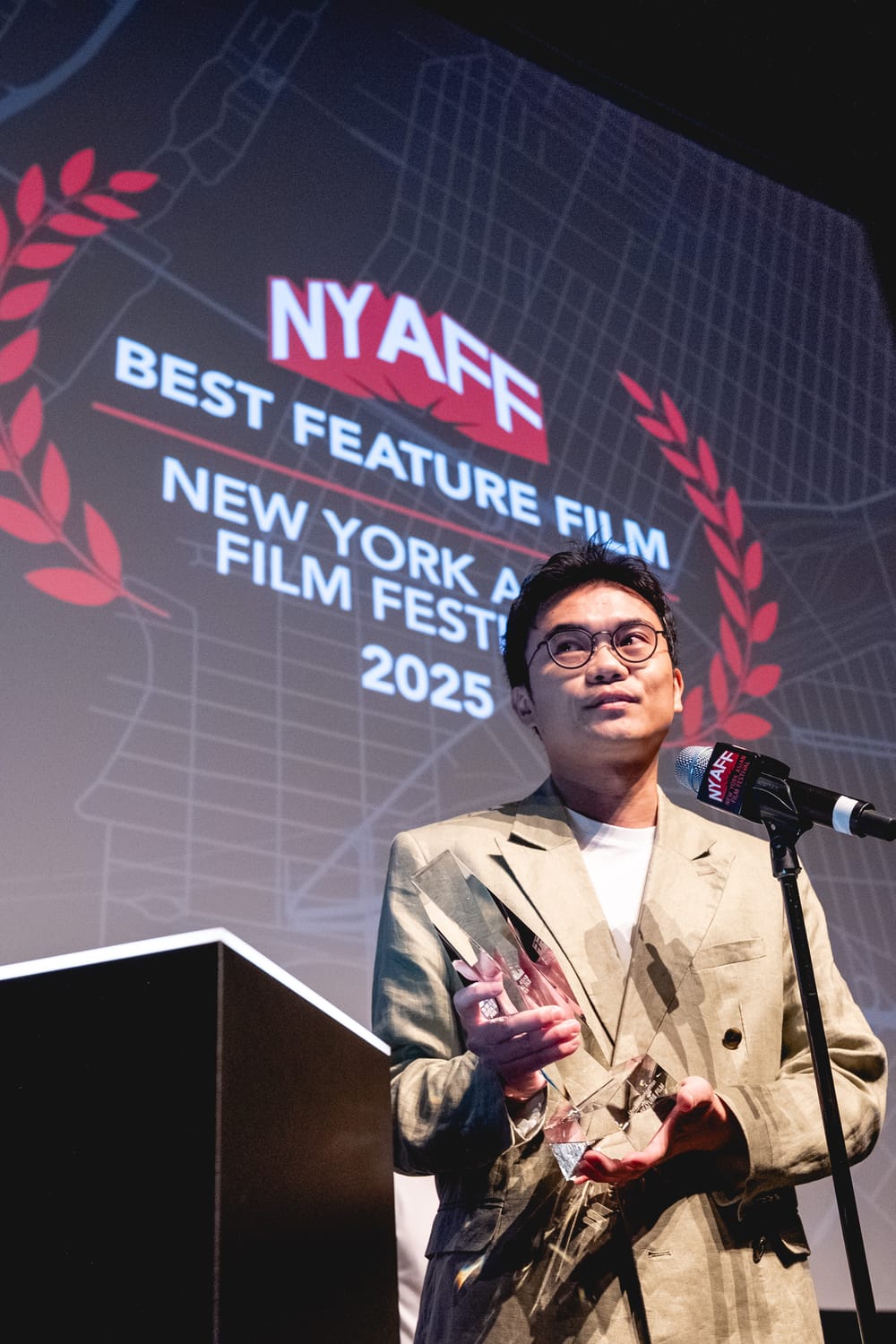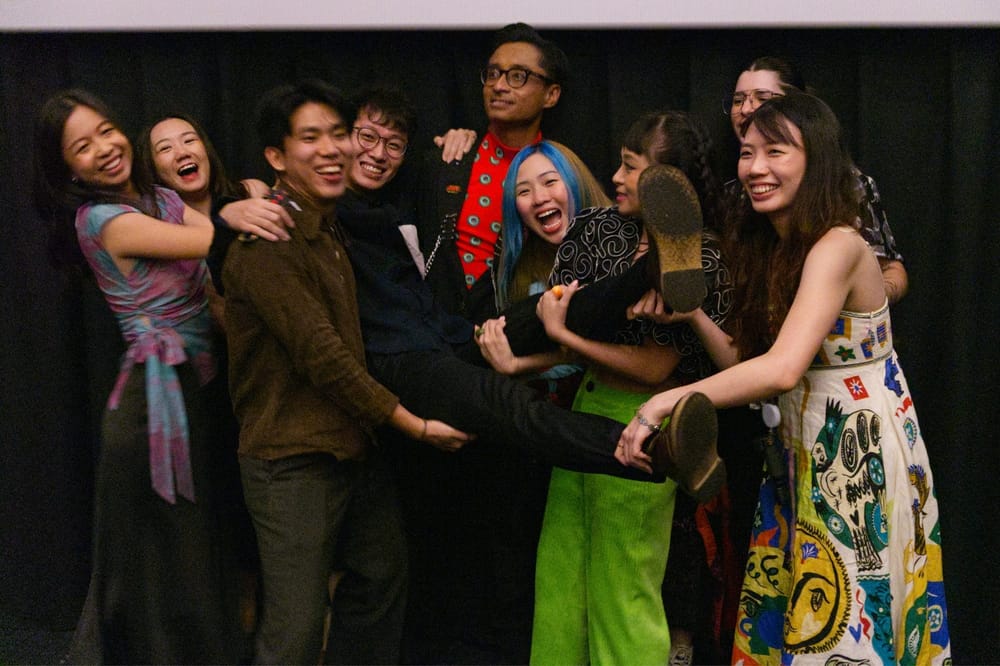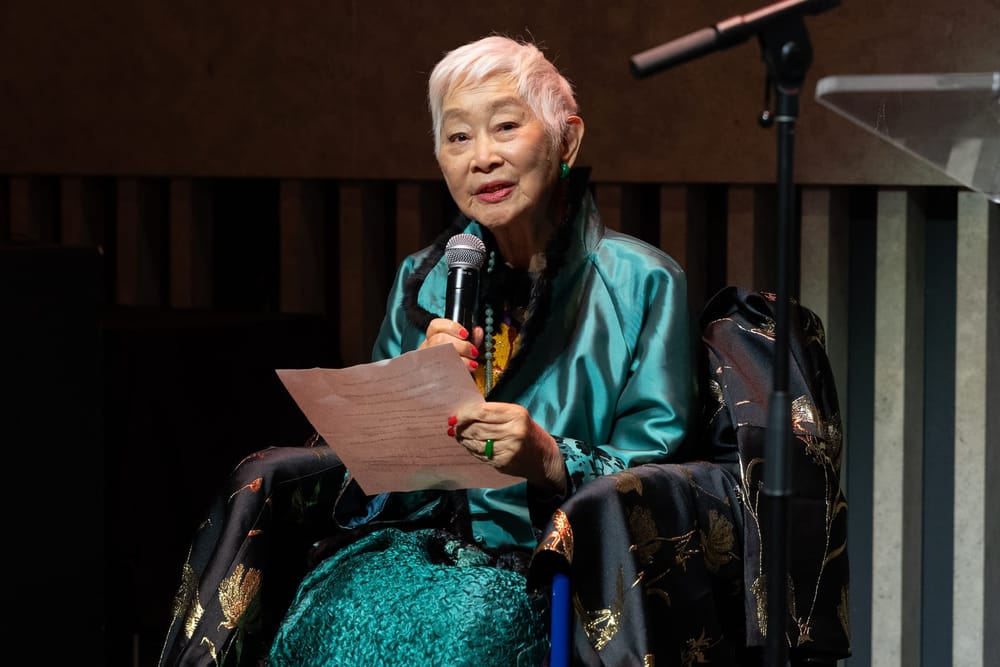By Ning Chang
With the North American premiere of 'Pierce' at the New York Asian Film Festival (NYAFF), writer-director Nelicia Low sat down for an interview to discuss her ambitious debut feature about the intense world of competitive fencing and the complexities of brotherly love, revealing the personal journey and intricate process behind creating an emotionally resonant and stylistically seamless film.
The film is about Zijia (Liu Hsiu-Fu), a lackluster fencer on Taipei’s national team, who finds himself drawn to his calculating and strategic older brother, Zihan (Tsao Yu-Ning), a fencer who is fresh out of a juvenile detention center for killing an opponent during a bout. Their mother Ailing (Ding Ning) is convinced Zihan is dangerous and best left in the past, but Zijia, inclined to believe Zihan’s innocence, is unwilling to let his brother go.
The sibling bond at the heart of “Pierce” lends the story an honest heft, part of Low’s “autobiographical” practice as a filmmaker that originally envisioned the film as solely about the family dynamic. Low says she drew from her own relationship with her older brother, who is autistic, to establish the complex push-and-pull between Zihan and Zijia. Zijia, in particular, struggles to reconcile his love for his older brother with his tendency to idealize him, something that Low says came from her own experience.
“Pierce” began germinating in Low’s second year in Columbia University’s MFA in Film Program, making her return to New York with her debut feature-length film a full-circle moment. “The process of writing took five years," Low reveals. “It was tough. I think (this was) because my skill level had not caught up to my ambition for the script.”
"Pierce" is undeniably an ambitious film. Seamlessly transitioning between the sleek whites, grays, and silvery steel of the fencing club and the intricate, chaotic domestic lives of its characters, it balances style with substance. Guided by Low’s firm hand, the film never feels like it sacrifices one for the other. Sophisticated, beautifully surreal, and unsettling, it’s hard to believe “Pierce” is a debut feature.
The original Chinese title for the film is an idiom, 刺心切骨, directly translated as “piercing heart, cutting bone,” which refers to a metaphorical, emotional pain. While trimmed down to “Pierce” for an Anglophone audience, Low’s film has a universal heartbeat.
Ever self-effacing, Low is quick to point out the ways in which “Pierce” was a collaborative effort. As an international co-production, spanning Singapore, Taiwan, and Poland, the film grew out of Low’s relationships with her collaborators.
“I shot a few short films in Taipei before, and my art director Hsu Kuei-ting is Taiwanese; we have a good relationship,” Low says. “I also knew I wanted to set the film in Taipei, so that's how Taiwan came in as a co-production country. And then when we were doing a Filipino film development lab, Full Circle Lab, Iza (Igel), our Polish producer, was one of the mentors. She really liked the script, and she said, 'Are you looking for any more elements?’
“I was looking for a director of photography and a composer. So, she put me in touch with a lot of cinematographers and composers. I met with, like, 20 to 30 cinematographers before I found Michal (Dymek). And this was before he did ‘EO,’ he was very fresh out of school, but it just clicked. And same with Pioch Kurek, who was the composer. It just felt right.”
Throughout the conversation, Low’s passion for the details of her craft shines through, from referencing touchstones of “dreamlike” Taiwanese films to precise descriptions of editing choices to create an “ultra-beautiful” texture. From start to startling end, “Pierce” feels like it came out fully formed, a testament to the singularity of Low’s vision and the technical chops needed to translate it to reality.
And people have noticed: earlier this year, “Pierce” notched a Best Director win for Low at the Karlovy Vary International Film Festival (KVIFF).
Low is still pinching herself. “Iza was like, ‘Okay, if everyone walks out and leaves, don't be offended,’” she laughs. “And then we had a three-minute standing ovation. The whole time as I was walking out and even on Instagram, I just kept receiving messages. People even stopped me on the street saying that they called their sibling right after the film.”
“I remember (my brother and I) always held hands,” Low shares. “And, in my mind, he was holding my hand because he loved me and because he was my older brother. But it was only when I was an adult that I realized he was never willingly holding my hand. In fact, I was the one that was grabbing onto his hand because my parents and I, we always grabbed onto him because we were afraid he was going to run away; he was very hyperactive due to his condition.”
And the fencing component comes from Low’s own history as a decorated fencer on Singapore’s National Team. “Once the character of the older brother (Zihan) started emerging—he's really manipulative, he's really smart, he always knows what you're going to do before you do it—it just made so much sense to me that he'd be an amazing fencer.”
The fencing onscreen is propulsive and elegant, and Low’s own understanding of the sport manifests in her ability to use fencing as a form of storytelling intelligible to an audience unfamiliar with the sport. Some of the most enjoyable sequences are the training sessions and matches, where the physical interaction between the characters feels like graceful, unsettling choreography, toeing the line between sport, art, and violence. In between putting her actors in fencing courses and her fencer extras in acting courses, Low worked on making the sport fresh and interesting on film, a task she felt, “as a fencer, was not possible” at first.
“When I was shaping the visuals of the story with Michal, I really wanted to avoid doing the cliché fencing thing, which is a wide screen fencing piece,” Low explains. “Because actually, when you fence, it's between you and me, it's the distance between us.”
Shooting with a 1.66 aspect ratio, Low frames scenes from unconventional angles showing the fencers' points of view, subsuming two opponents in the flurry of action surrounding them, recording the harsh buzz of a point, the delicate flash of a saber, or the fencers’ quiet celebrations, instead of the usual stark and sanitized drama of other fencing films.
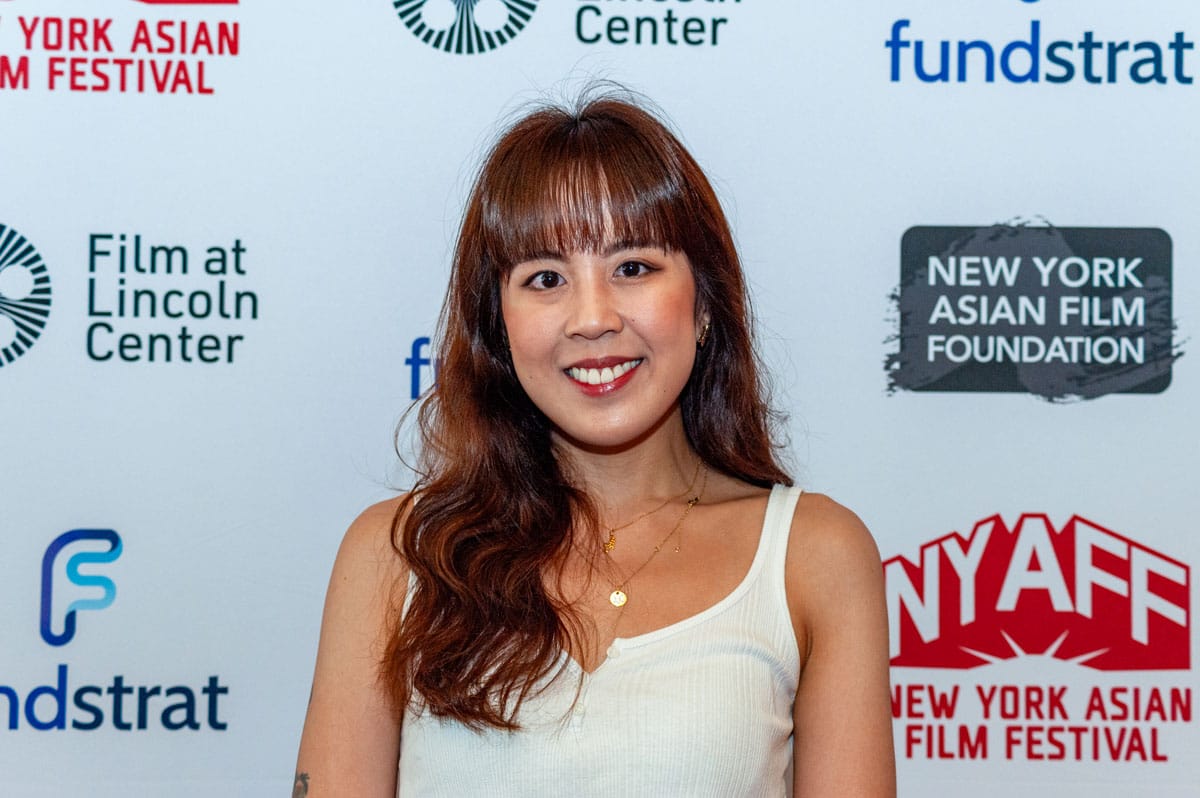
“Pierce” hones in on the physical, showing much more than telling. Zijia, in particular, is an open book, Liu skittering and slouching across the screen like a wide-eyed deer. And whether in the fencing club or out on the streets, Zihan is wolfish and unreadable, treating each person as if they were another opponent to puzzle out.
While navigating her characters and the ways in which their dreams fall short of reality, Low refers to a quote from Jeanette Winterson’s “Sexing the Cherry”: “As your lover describes you, so you are.” Low feels that, in the end, the reality of another person is what you make of it. “That's like human nature. We are what people believe us to be a lot of the time.”
Throughout the film, as the two brothers circle around each other and guess at the other’s motives, they can’t help but feel drawn in by the other’s potential. Yet, for two polar opposites, the fateful ending of the film wins out.
Without spoiling the film’s finale, Low admits that “Pierce” was always going to end this way. “I started with the ending when I wrote the film. And then the journey – why it took five years to write was because I didn't know why he did it,” Low says. “In the end, he realizes that all that doesn't matter. The truth doesn't really matter. Love prevails over truth.”
She elaborates, without giving too much away: “I had a very close friend who watched the film and he said, “You know, your film asks a very complex question, but in the end the answer is very simple: it's just love. Love as a pure form is, I think, sacrificial because it's all giving, it's unconditional.”
Country: Singapore-Taiwan-Poland
Director: Nelicia Low
Writer: Nelicia Low
Cast: Tsao Yu-ning, Liu Hsiu-fu
Languages: Mandarin with English subtitles
Running time: 104 minutes


